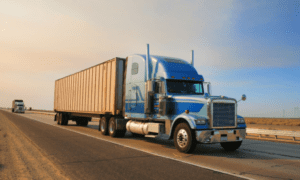Farming remains one of the oldest professions in human civilisation. The profession has evolved through modern farming tools and techniques, making the process much easier and more accessible than traditional methods. For beginners starting in agriculture, having the right tools is vital to ease the farming journey and improve productivity.
A tractor is one of the significant investments for a farmer, along with an array of primary implements required to conduct various farm operations successfully. The top five tractor implements discussed here will benefit new farmers as they are multifunctional, user-friendly, and essential for tilling, sowing, harvesting crops, and maintaining fields.
The article discusses the top 5 tractor-farm implements for beginners to help those using this vehicle stay informed.
Why are Tractor Implements Important?
Tractors are super handy for all kinds of farm work, but they can’t do everything on their own. That’s why tractor implements are so helpful! Implements are attachments that let you customise your tractor to do specific jobs more efficiently. For example, you can hook a plough to till the soil, a seed drill to plant crops nice and straight, or a loader to scoop and move materials around. Swapping implements allow one tractor to plant seeds, harvest crops, clear snow, and more, depending on the season and workload.
While a tractor is powerful, adding implements expands its capabilities. The right implements make yardwork, fieldwork, and even roadwork a breeze. They save tons of labour and let farmers do more in less time. That’s why every tractor needs a set of implements to help it tackle everything the land demands.
Top 5 Tractor Farm Implements for Beginners
There are five tractor farm Implements that you should know if you are a beginner,
1. Plough
The plough has been used since the early days of agriculture and continues to be a vital farm implement. It functions by loosening the topsoil to allow smooth seed implantation during sowing. This allows time for essential soil aeration, adding organic matter, and providing excellent conditions for seed germination.
Benefits
- Improves soil fertility as sun and air reach deeper soil layers
- Removes obstacles like stones, weeds, and debris
- There is a variety to choose from, such as disc ploughs, mouldboard ploughs, and chisel ploughs, based on soil type and tractor capacity.
Tips
- For compact or rocky soil, start with a disc plough.
- Ensure plough compatibility with tractor horsepower to prevent operating issues.
- Reduces manual labour as it prepares soil for improved crop production
2. Harrow
Once tilled, the land typically has clumps of earth that need breaking down. This is where a plough comes in. It creates a fine soil structure ideal for planting seeds.
Benefits
- Increases seed germination as it breaks down clods, improving seed-soil contact
- Controls weeds by uprooting them so they don’t compete with crops
- Variety for beginners – disc/chain/tine harrows are easy to operate and maintain
Tips
- Chain harrow better suits soft soil as it’s lighter and easier to handle
- Disc harrow is ideal for tough soil due to a more vital cutting mechanism
- Saves time and crop production by levelling field for uniform growth
3. Seed Drill
For beginners, planting seeds evenly at the desired depth is challenging. A seed drill eliminates the guesswork around seeding with precision and efficiency.
Benefits
- Consistent spacing, depth and straight rows for uniform growth
- Faster than hand seeding, saving time in the field
- Accurate seed placement reduces wastage
Tips
- Some models have fertiliser applications for easier workflow
- Compact seed drills are available for small farms and lower tractor horsepower
- It is a worthwhile investment for severe farmers
4. Tractor-Mounted Sprayer
A tractor-mounted sprayer efficiently applies pesticides, herbicides or fertilisers. It ensures uniform distribution for reliable crop protection.
Benefits
- Chemicals spread evenly, reducing the risk of over or underuse
- Versatile uses – pest control, foliar feeding, weed management
- Lowers risk of crop damage from pests/weeds
Tips
- Calibrate the sprayer to apply the correct chemical quantities
- Thorough cleaning prevents clogging and contamination
- Follow safety guidelines when handling chemicals
5. Trailer
A trailer serves various purposes, such as transporting produce and goods in/out of the farm, hauling equipment, etc. It is indispensable logistics support for farms.
Benefits
- Multi-use – transporting feeds, fertilisers, equipment
- Durable and customisable as per need and budget
- The most cost-effective implementation, considering the usage
Tips
- Ensure the tractor can tow loaded trailer weight
- Opt for a tipping mechanism for fast unloading
- Start with a medium-sized trailer that’s easy to handle and useful for most operations.
Other Useful Implements
While above are the five essentials, other implements can be handy later on:
- Rotavator: A Rotavator is helpful for seedbed preparation and mixing organic matter.
- Cultivator: A cultivator is a secondary tillage to remove weeds and loosen soil
- Baler: It saves time handling hay/straw; large balers are used commercially.
- Fertiliser Spreader: A fertiliser spreader ensures uniform distribution of fertilisers, seeds, or lime across your fields.
- Disc Ridger: A disc ridge is a specialised tool for creating furrows for planting crops like potatoes, sugarcane, or vegetables.
Choosing the Right Implements
There are a few things that you should keep in mind while you go into the market to buy the right farming implements for you:
-
- Farm Size: Small farms require simple, basic implements, not heavy-duty ones.
- Soil Type: Different designs suit different soils.
- Tractor Capacity: Implements must match the tractor’s weight and usage.
- Budget: Start with essential tools and add more later as operations expand.
- Tractor Horsepower: Ensure your tractor can handle the implement’s weight and functionality.
- Ease of Maintenance: Beginners should prioritise implements that are easy to maintain and repair.
-
Versatility: Implements that can perform multiple tasks are a boon for beginners, as they reduce the need for separate tools.
- Local Dealer Support- Buying implements from a trusted local dealer ensures access to after-sales support, spare parts, and servicing.
Conclusion
The right tools make all the difference for beginners starting in farming. Core implements like plough, harrow, seed drill, sprayer, and trailer equip farmers to efficiently prepare land, sow, nurture and harvest crops while saving time and effort. These tools and the right mindset set beginners on a rewarding farming journey.
Remember, farming is a continuous learning process. Beginners should start small, learn from each season, and make timely investments into suitable equipment that aligns with operational goals. With perseverance and the correct setup, you’ll be on the way to reaping success.



































